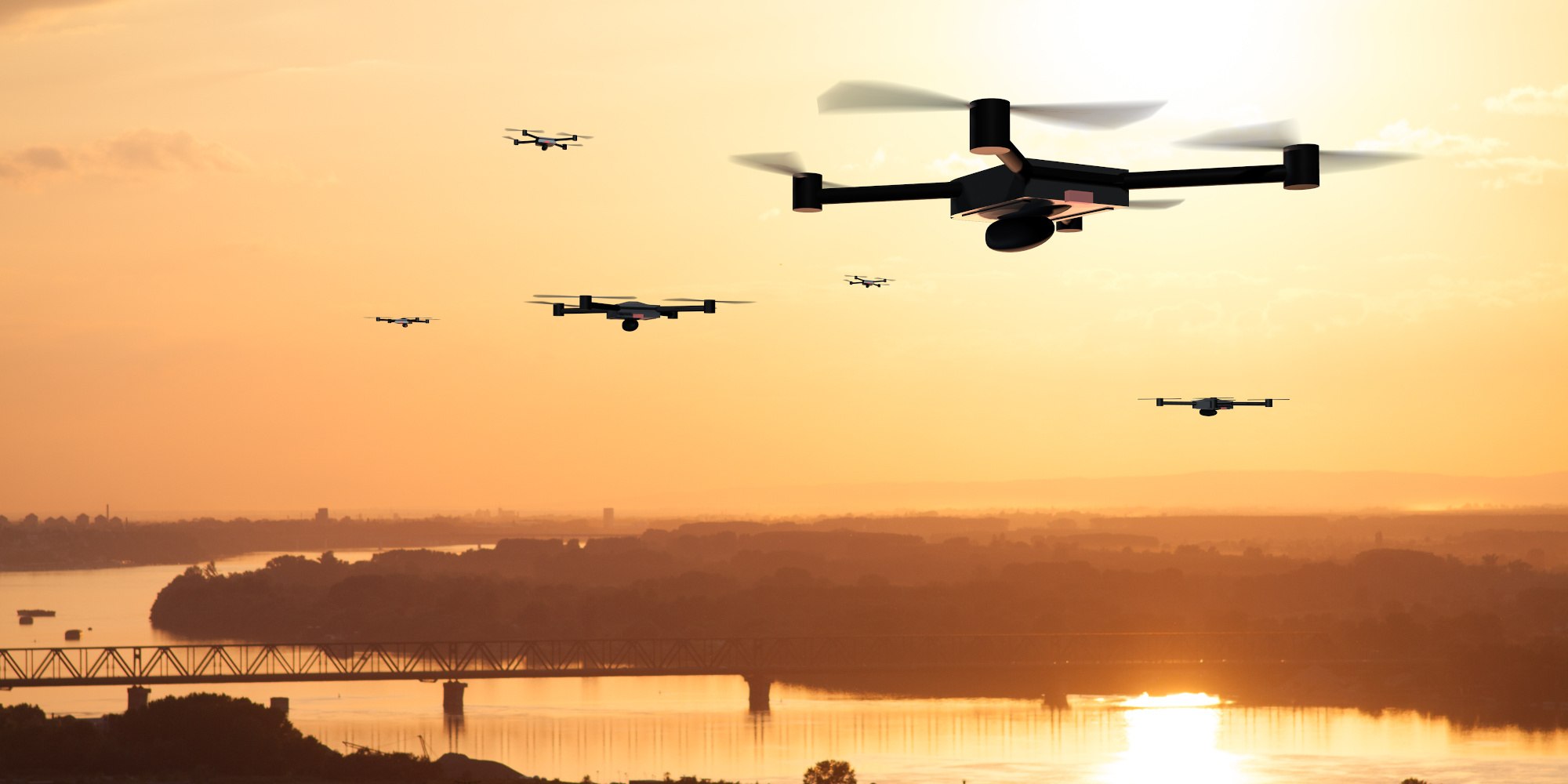
The Future of Tech
Swarm Intelligence
6th August 2020
As technology increasingly augments every aspect of human life, those driving it continue to harness lessons learned from the natural world. Rooted in the study of biological systems, swarm intelligence is one such example, transforming a range of technological fields, from artificial intelligence to robotics. With advances in this area showing no signs of down, we take a look at swarm intelligence and its implications for the future.Natural beginnings
Swarm intelligence is the collective behaviour of decentralised, self-organised systems, which can be natural or artificial. Put simply, it is the idea that a group of individual agents make smarter decisions when working together rather than alone. For example, when moving as a colony, ants are able to choose the best nest in which to settle by collectively weighing up their options. The tech world takes inspiration from this natural swarm behaviour to create a type of biologically-inspired artificial intelligence. Human swarming
As humans didn't evolve the natural ability to form swarm intelligence, technology is bridging the gap. Platforms, such as Swarm by Unanimous AI, are providing the interfaces and AI algorithms required to enable 'human swarms' to form online. By combining the knowledge and insights of diverse groups to make decisions, they are significantly amplifying intelligence. Demonstrating its power in 2016, Unanimous AI successfully predicted the top four finishers at the Kentucky Derby by harnessing the joint expertise of a 20-person panel.In a business context, this is strengthening decision-making processes, from assessing the effectiveness of marketing to financial forecasts. It is also being used to transform healthcare, with Stanford University finding it helps doctors more accurately diagnose pneumonia.
Swarm robotics
The field of swarm robotics is also gathering pace, with the help of artificial intelligence and blockchain. Inspired by swarm intelligence in nature, researchers at Georgia Robotics and InTelligent Systems Lab (GRITS) have developed a small swarm of robots that can perform simple tasks, such as spell and play the piano. Unable to communicate, the bots rely on the position of surrounding robots to decide on the optimal route to complete their task. Drone swarms
Drone technology is an exciting area benefitting from the application of swarm principles, with use cases ranging from space exploration to military missions. At the 2018 Winter Olympics, spectators watched as 1,218 of Intel's Shooting Star drones lit up the skies in honour of the opening ceremony. Elsewhere, university researchers have developed drone swarms that can share energy amongst each other when individual counterparts are running low on power. Future of swarm intelligence
As technology advances over the next few years, experts predict there will be a shift away from the single intelligent thing towards collaborative swarms. The widespread use of swarm intelligence principles promises to be a game changer for the industries it touches, transforming life both in and outside of work. Despite some concern over placing power in the hands of machines, the benefits of swarm intelligence are clear to see. Take the world of insurance, for example. Swarm drones alone are expected to improve the efficacy of the claims process through property inspections, making it possible to effectively investigate and settle losses with minimal human intervention - a factor especially useful when an area is deemed hazardous. Meanwhile, in a telematics context, work is underway to collect IoT (Internet of Things) swarm endpoint data, capturing even more information to deliver a clearer understanding of risk, as well as broader insight and/or foresight.
Watch this space.
© 2025 Cheshire Datasystems Limited
Top Employer

